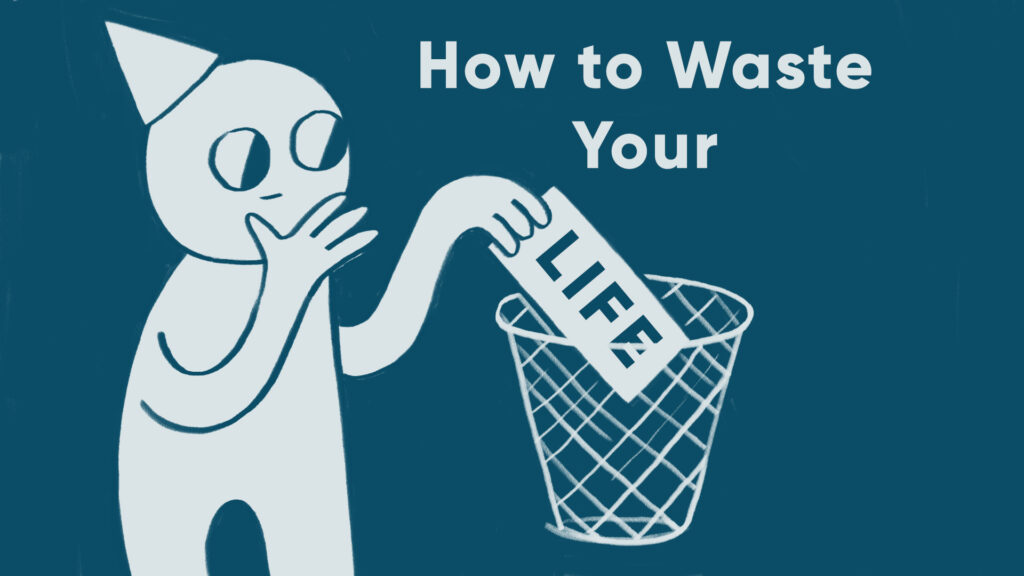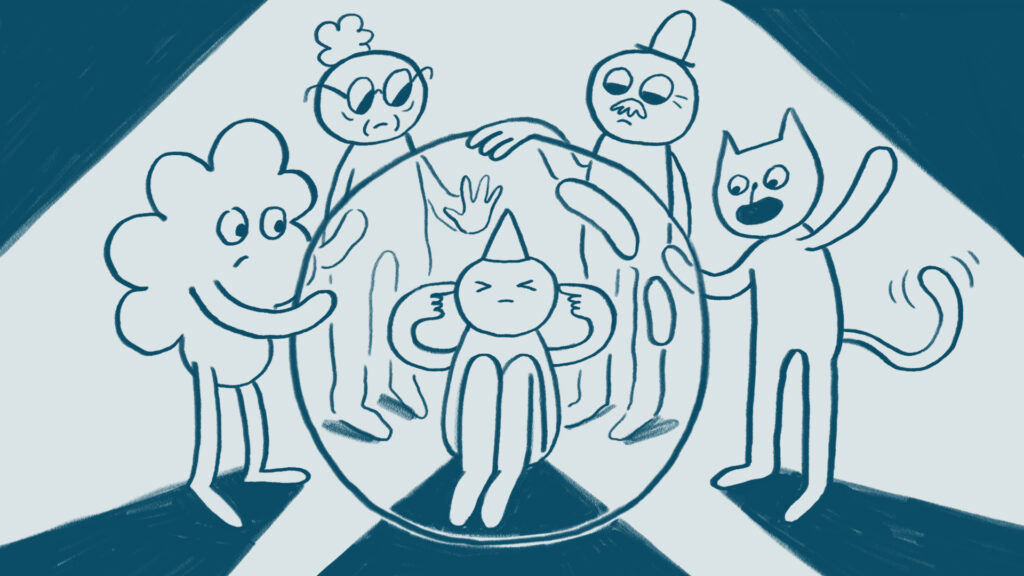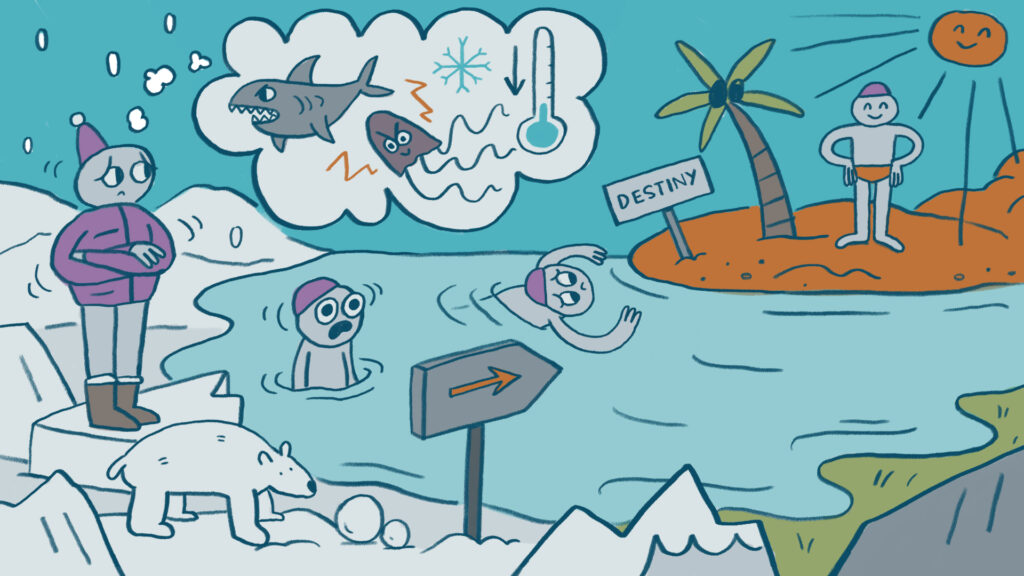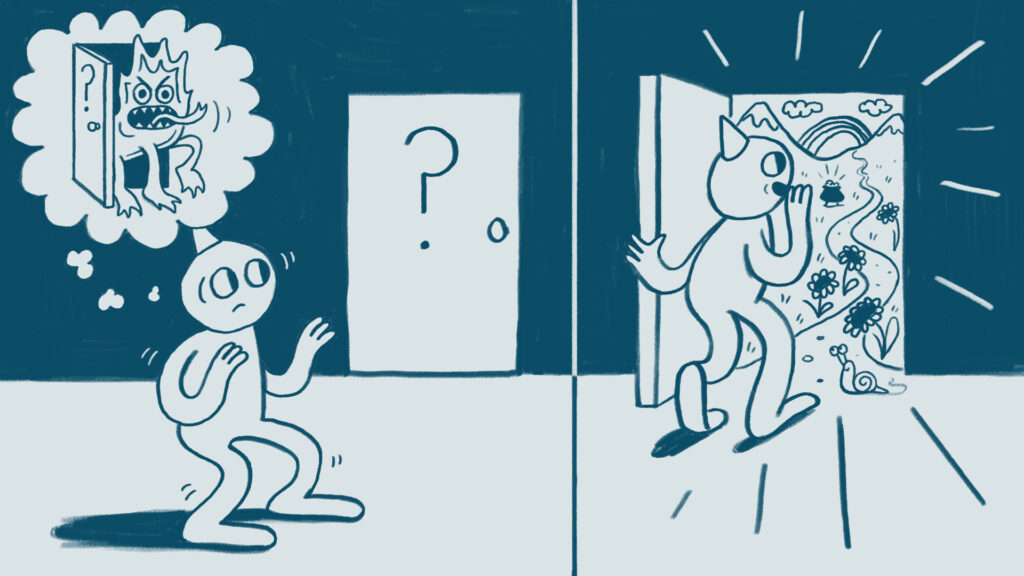
Step #1 – Don’t Think About It
Just bumble through life, ignoring everything and everyone and making no plans. Everything happens for a reason, right? It is too painful to consider what the future might hold. To plan it. To make hard decisions.
It is easier not to think about it. It is easier to continue along the same path; have the same thoughts, the same friends, the same level of education, and the same career for your entire life because that is what’s easy. Because you are busy, you must be productive, right? I have packed all the hours of my day full of things, so what if they aren’t that meaningful? So what if those hours may not be the most productive things?
A meta-analysis looked at 11 studies that asked elderly people about their regrets, and the biggest regrets were, in descending order they were: education, career, romance, parenting, the self, and leisure.1
But we aren’t going to think about regrets at this point, we are too young, and too much of our life is ahead of us. Remember, our goal isn’t to succeed in any of these aspects; our goal is to waste our life.
Step #2 – Ignore Relationships

Just because close relationships strongly impact happiness doesn’t mean we need to focus on our relationships.2 They are hard work, they might not work out, and I might get hurt because of them. I don’t want to get hurt. Heartbreak, rejection, and abandonment; are hard things. Even if they make me learn, grow, and become a more mature human, I don’t want to deal with the initial pain. Also, what odds it might actually work out well in the end? And maybe the relationship positively changes my life. Slim to none, I think.
It’s more important to focus all of my attention on myself to improve my life. I should ignore others’ thoughts, opinions, and emotions because mine are the only important ones. Who would want to help me anyway? Why should I help others? I saw some evidence that altruism makes the person helping happier and has higher subjective feelings of well-being3, but I don’t believe that. I am always right; I can’t be wrong. It’s better to focus on me.
It’s better to ignore relationships.
Step #3 – Condemn Yourself to Mediocrity
I’m not good enough, smart enough, talented enough, tall enough, good-looking enough, or strong enough to do that. Better to stay here. My place. Better not to make big waves. People might laugh at me. People may think badly about me if I try that. I could fail, and that would be bad. It is much easier to stay here where I am meant to be and where I should be, that life is meant for other people, not for me.

Who am I to start that business, go back to school, change careers, and ask that person – aren’t I too old? Aren’t I too young?
A meta-analysis looked at two more sets of studies regarding regrets and opportunities. Overall, they found that people’s biggest regrets are from where people saw their largest opportunities; their biggest regrets came from seeing the greatest prospects for change, growth, and renewal and ignoring them.1 Perfect, so we know exactly what to do: when we have those opportunities and somewhat scary roads, we should stop and turn around. The door is closed; who knows what’s behind it? Better to be safe and better to condemn ourselves to mediocrity.
Step #4 – Thinking, “It will all come to me”

As I said before, everything happens for a reason. Hard work will not change that. Courage and discipline have never been shown to accomplish anything. I don’t need to wake up earlier, go to the gym, show up to work before, go above and beyond, stay longer, study more, or improve myself because what’s the point? It should all come to me. I deserve it.
The guy in the movie that wakes up early, works out harder, ignores distractions, and focuses with all his might on improving always ends up losing, right? Or, at least, that’s all I see because I stop watching the movie halfway through. What’s the point of finishing the film if I know the ending? A loser is always a loser, and a winner is always a winner; no amount of discipline can change that.
If someone fires me, dislikes me, doesn’t buy my product, or doesn’t listen to me, it’s because they are wrong. They have an agenda and hate for me beyond whatever I am making. It couldn’t be about the thing I just made because whatever I make is perfect. I deserve everything because I am great; it will all come to me.
Step #5 – Staying in your comfort zone
Avoid all scary things. TV is nice, snacks are nice, this bed is nice, this couch is excellent, my job is “ok,” my friends are fine, my relationships are fine, I’m happy enough; I don’t need any challenges. Challenges are difficult. Challenges are exactly that, challenging. Why would I want to submit myself to hard work? Or, even worse, to something scary. The average person spends nine years in front of their TV; I bet you can go for 11 at least!4 Why create something when I can consume instead?
I can’t start my website, my business, my YouTube channel, or my podcast because not only is that hard work but also, then people will see me. What if they laugh at me? Or make fun of me? It might be better to simply keep talking about doing these things as opposed to actually doing them. It might be better to watch the newest thing on Netflix.
Discomfort and the unknown should be avoided at all costs. Even if that discomfort is around what you are meant to be. What your destiny is and everything in your life points you towards. What excites you in the morning? What makes you feel alive, invigorated, strong, impactful, and happy? Those are unimportant feelings. Make sure to avoid anything scary. Stay away from anything that might take extra time, work, or thought.
It’s the status quo for a reason; you don’t want to upset that. Put the fear of failure above everything else. It’s better to just stay in your comfort zone.
I hope you enjoyed my guide on how to waste your life! Tune in next week when I teach you why sleep is a complete waste of time.
Work Cited:
- Roese, N. J., & Summerville, A. (2005). What We Regret Most… and Why. Personality and Social Psychology Bulletin, 31(9), 1273–1285. https://doi.org/10.1177/0146167205274693
- Demir, Melikşah. “Close relationships and happiness among emerging adults.” Journal of Happiness Studies 11.3 (2010): 293-313.
- Post, Stephen G. “Altruism, happiness, and health: It’s good to be good.” Positive Psychology in Behavioral Medicine (2014): 66-76.
- Vioque, Jesus, Alberto Torres, and Joan Quiles. “Time spent watching television, sleep duration and obesity in adults living in Valencia, Spain.” International journal of obesity 24.12 (2000): 1683-1688.
